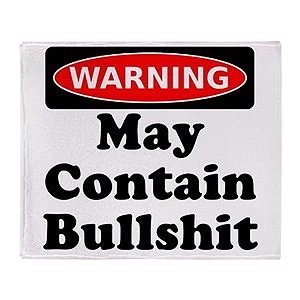FakeNews

"Simply swallowing seems to make me sick."
Our venerable New York Times seems to have come under harsh criticism for having published a glaring omission, a shortcoming that they reported shortly after publishing. The harshest critics complained that this little incident, and it really was, in the scope of everything, a microscopic error, proves a point they'd been trying to make forever, (Or did it just seem like forever?) that the mainstream (or, in their vernacular, "lame stream") media has always been untrustworthy. The critics scream (must they always scream?) "Fake News" again, but we're deaf to their frenzied exhortations. We know that the REAL Fake News outlets never report on their own shortcomings, so na-na-na-na-na-na! ©2019 by David A. Schmaltz - all rights reserved
Truth is, the venerable New York Times has never once published an edition that failed to include a few errors. It has likewise never published an edition that did not feature an A Section column entitled Corrections, where the editors fess up to their own shortcomings. It also publishes readers' letters, a disturbingly large percentage of which take umbrage with something the paper published. Hardly invulnerable to criticism, seeming to embrace it instead, this whipping boy of those who insist it deals exclusively in Fake News somehow manages to maintain the self esteem to publish, then publish again. Shameless!
Well, perhaps not completely shameless. They've found themselves to have unwittingly hired reporters who plagiarized and fabricated, one of which, if my memory serves me, went on to win a much-vaunted Pulitzer Prize before being unmasked and driven out of the industry. That wasn't Fake News, but faked news so cleverly couched that not even the cynical professionals caught on until they did. Is it likely that most of the journalists working for the paper live secret lives, cleverly fabricating and getting away with it? Hardly. The Fake News screamers live in a dystopian fantasy world. I suspect that they feel lonely there. Why else would they so actively recruit others to embrace their point of view?
Interestingly, those journalists whose article was criticized for that unfortunate edit I mentioned above convened a book signing later this week where they disclosed something they had omitted from their book, publication of which served as the newsworthy basis for the discredited article. The book reported on a certain recently-installed Supreme Court judge whom they'd tried to interview to include his perspective in their reporting. Said judge had agreed to speak with them (through an unnamed mediator, of course) with the stipulation that their book report that they had not spoken with said judge. The journalists declined his invitation to lie, but reported the story at their book signing event. This decision was also not fake news, but journalistic integrity in action. An inconvenient truth, which has become the general basis upon which Fake News complainers stake their claims. If it's the truth, it seems, someone will label it FakeNews.
My point? News is news. It gets generated within a context wherein the whole truth rarely resides. Every story holds many facets, none of which tell the whole story. With short deadline pressure, some of those facets will often prove inaccessible. A source won't return a call. A backstory fails to emerge. A thousand reasons explain this phenomenon. If I want the whole story, I might have to wait until history sweeps up the current events' confetti and I can see the sidewalk again. Fifty years probably suffices as a reasonable lag time. But, if I want access to the current story, in whatever emergent stage it presently appears, I must settle for its inescapable incompleteness. Reporters are not objective, but only because they cannot be. Objectivity, as I've frequently said, is the delusion that one could have an observation without the degrading presence of an observer goobering up the purity of the experience. Some observers seem experienced and, dare I suggest, professional enough to catch the grossest of their biases. Editors try to point out the less obvious ones before publication might embarrass the paper. It's a terribly crude process, but perhaps necessarily so.
The purists who call every report Fake News seem to aspire to a different ethic, if, indeed, I can grace their aspiration as ethical. They seem to want news to mean positive public relations where truth is never the purpose, but promotion might be. They plead to be spoken well of, however dastardly or mindless their actions. The alleged murderer has the constitutional right to be referred to as an alleged murderer until he's convicted in a court of law. The Supreme Court judge who offered a devil's bargain to two journalists has not been charged with a crime and may not credibly plead slander. He may present counter evidence if he chooses, and let the court of public opinion decide, though I doubt that he wants the court of public opinion to wade into this controversy. He'll instead deny (through an unnamed mediator, of course) and claim Fake News instead.
I struggle to accept the ultimately unavoidable responsibility to understand that every published piece, this one included, comes with a little warning sign, like the one illustrated above, attached. This warning serves to amplify the need for me to read skeptically, not to find the Fake News cleverly imbedded by unscrupulous journalists, but to properly sort the chaos presented. The information needs a little cooking time before it can be properly digested. Simply swallowing seems to make me sick.


